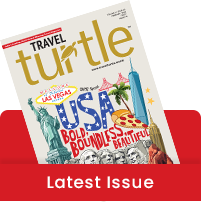 Business travel is up in the air. The toss-up between cost-savings, employee safety, and the value of in-person interaction is an ongoing boardroom debate. In the age of virtual calls, many employees are desperate to hit the road, while others prefer to conduct their business via digital channels.
Business travel is up in the air. The toss-up between cost-savings, employee safety, and the value of in-person interaction is an ongoing boardroom debate. In the age of virtual calls, many employees are desperate to hit the road, while others prefer to conduct their business via digital channels.
Whichever side of the fence you fall on, business travel remains vital to build working relationships and drive growth. Yet, there are certain topics relating to company travel initiatives that stakeholders don’t quite agree on. To understand the perspectives, challenges, and opportunities, it’s vital that leaders know where the disconnects lie. The latest Global Business Travel Survey from SAP Concur asked business travellers, travel managers, and chief financial officers (CFOs) about friction points in business travel.
These are the main areas of disagreement:
1. The need for business travel
The overwhelming majority (99%) of business travellers believe travel is helpful, if not essential, to success in their roles. Yet, 43% of CFOs say more than half of their company’s business travel could effectively be replaced by teleconferencing or other communication methods that don’t require travel. A third (33%) of travel managers view the tilt towards virtual meeting options as a direct threat to their company’s business travel.
2. Employee willingness to travel
80% of business travellers are very willing to travel over the next 12 months, marking an increase from 67% in 2023. However, nearly half (45%) of CFOs believe employee reluctance or refusal to travel could negatively impact company health within the next year. 35% of travel managers view employees’ unwillingness as a threat to business travel.
3. Changes in travel budgets
Each role has a different view on how travel budgets are evolving. 14% of business travellers think their company’s travel budgets will remain stagnant or decrease this year. Yet, only 24% of CFOs and 22% of travel managers say budgets will be maintained or cut – suggesting a disconnect between employee perceptions and management’s financial outlook.
4. The roles that hold the most influence
There’s a perception gap over who influences business travel decision-making. Business travellers believe travel managers (39%) and CFOs (36%) have similar influence, significantly ahead of their own at 28%. However, travel managers are broadly aligned in feeling they (43%) have nearly the same amount of influence as CFOs (41%), compared to only 16% for business travellers. CFOs strongly disagree, with 69% believing they are the most influential decision-makers, ahead of travel managers (21%) and travellers (9%).
5. The impact of budget limitations
Although they see travel as critical to their roles, more than three-fourths (79%) of business travellers say important trips have been curtailed due to costs. In alignment, 69% of travel managers believe their company travel budget fails to reflect the importance of business travel to their organisation’s success. And whilst CFOs acknowledge the problem, there’s dissent in the ranks. 51% of CFOs somewhat agree that budget limitations stop employees from travelling as much as they need to do their jobs well, while just 29% strongly agree.
Aneesh Batra, Head of Customer Success, India & Southeast Asia at SAP Concur says “These findings highlight the points of contention between travellers, travel managers, and CFOs, for the first time in our Global Business Travel Survey. To empower employees to develop professionally and create new opportunities on the road, it’s vital that every role in the organisation aligns on common goals.” Explore more insights in the seventh annual SAP Concur Global Business Travel Survey.



